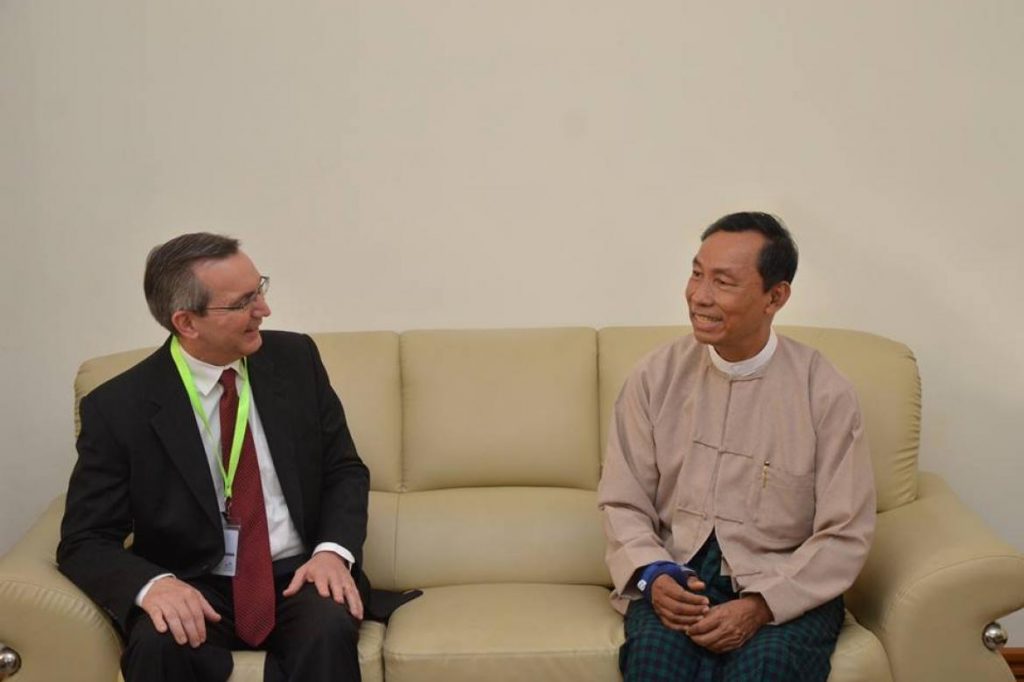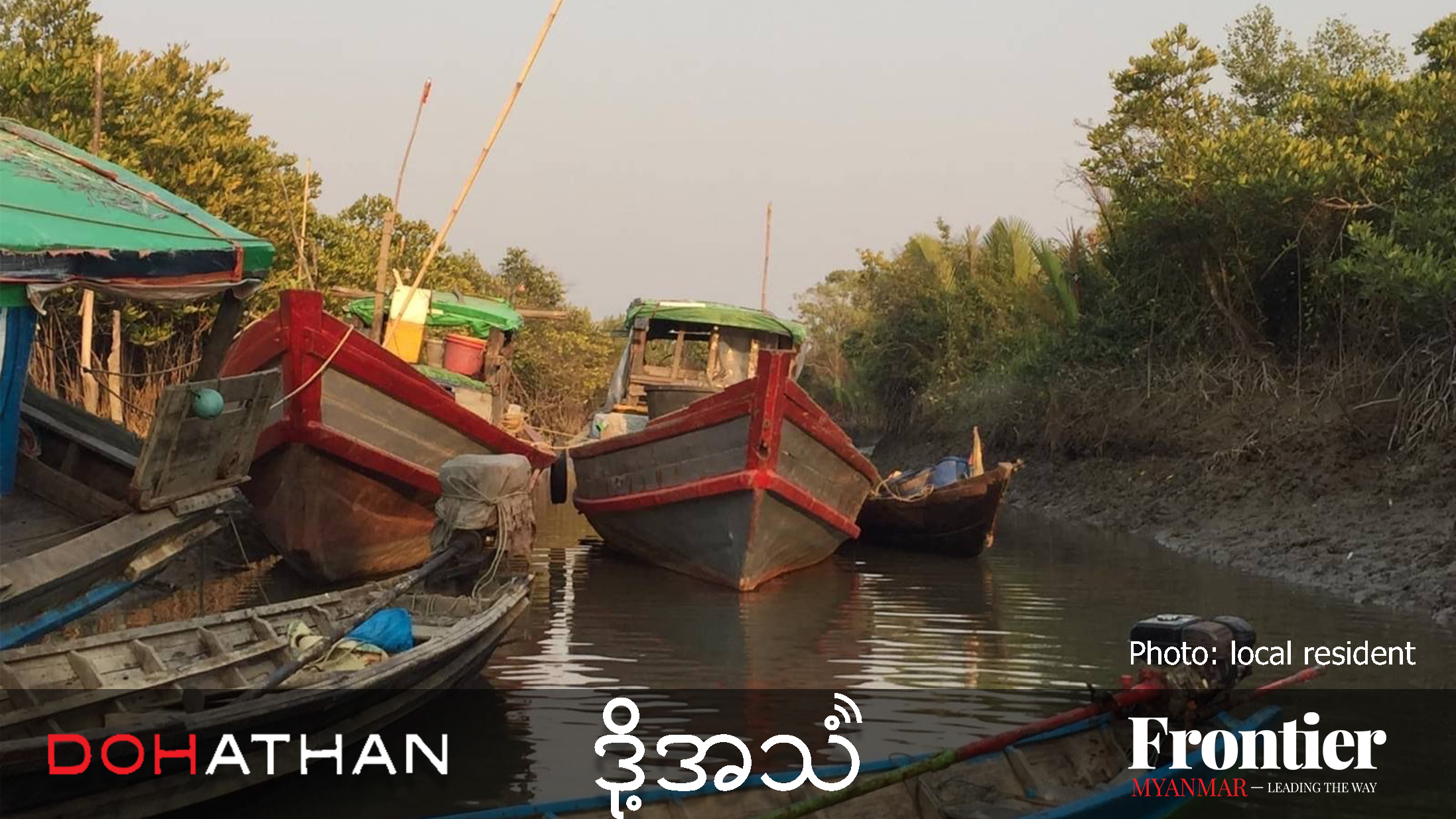By SEAN GLEESON | FRONTIER
YANGON — New US Ambassador Scot Marciel has met with former parliamentary speaker Thura U Shwe Mann to discuss the vexed question of Myanmar’s stateless Rohingya population, two weeks after an official statement on the issue prompted a loud protest outside the US Embassy.
Fresh from his first major policy speech on Tuesday, which outlined the future of US-Myanmar cooperation, Ambassador Marciel met with Shwe Mann in Nay Pyi Taw on Wednesday.
In an account of the meeting posted on Shwe Mann’s Facebook page, the former chair of the Union Solidarity and Development Party said he had made clear that the ambassador should not use a word that was “unacceptable” to the people of Myanmar, in reference to the Rohingya community’s preferred means of self-identifying.
In response, Marciel said that he had not sought to disregard the opinion of the people of Myanmar by using the word Rohingya, and that his actions as ambassador were determined by US government policy, according to the post.
Support more independent journalism like this. Sign up to be a Frontier member.
Shwe Mann was last month ousted from the USDP after taking a position in the new parliament’s Legal Affairs and Special Cases Commission. Long seen as a willing political partner to National League for Democracy leader Daw Aung San Suu Kyi, in August 2015 the former speaker and several of his party allies were purged from their official positions in the USDP.
The US Embassy could not be reached for comment on Thursday afternoon.
The previous day, Ambassador Marciel stood by earlier comments asserting the right of communities around the world to self-identify as they saw fit, while speaking a crowd of civil society leaders and journalists at the American Center in Yangon.
The Rohingya community in Rakhine State, estimated to number upwards of 1.1 million people, have long been viewed as Bangladeshi immigrants by successive governments and a significant proportion of the public, despite many tracing their ancestry back generations.
More than 100,000 have lived in squalid internment camps since the outbreak of communal violence in 2012, and require local government permission to leave their confines in order to shop or seek medical treatment.
On April 28, around 300 nationalist demonstrators gathered outside the US Embassy to protest a reference to the Rohingya community in the aftermath of a fatal ferry accident near the Rakhine capital of Sittwe.
In the days after the protest, the Myanmar Times reported that Aung San Suu Kyi, in her role as Minister of Foreign Affairs, had asked the US Embassy to refrain from using the word Rohingya.
Additional reporting by Hein Ko Soe.







